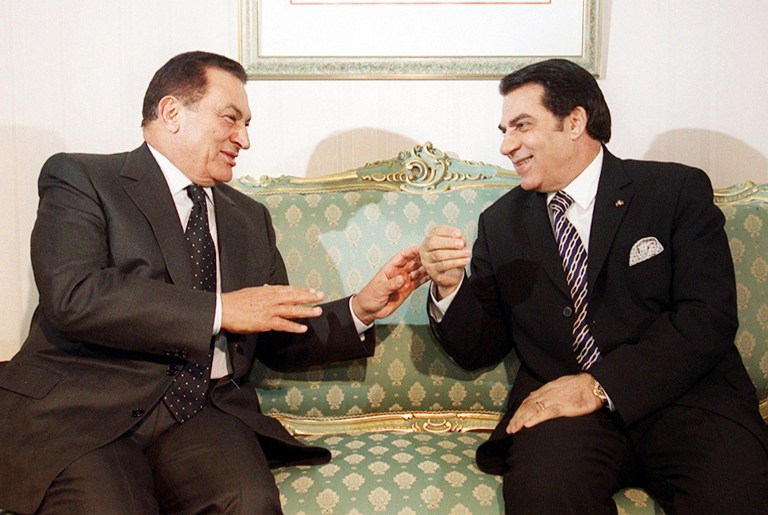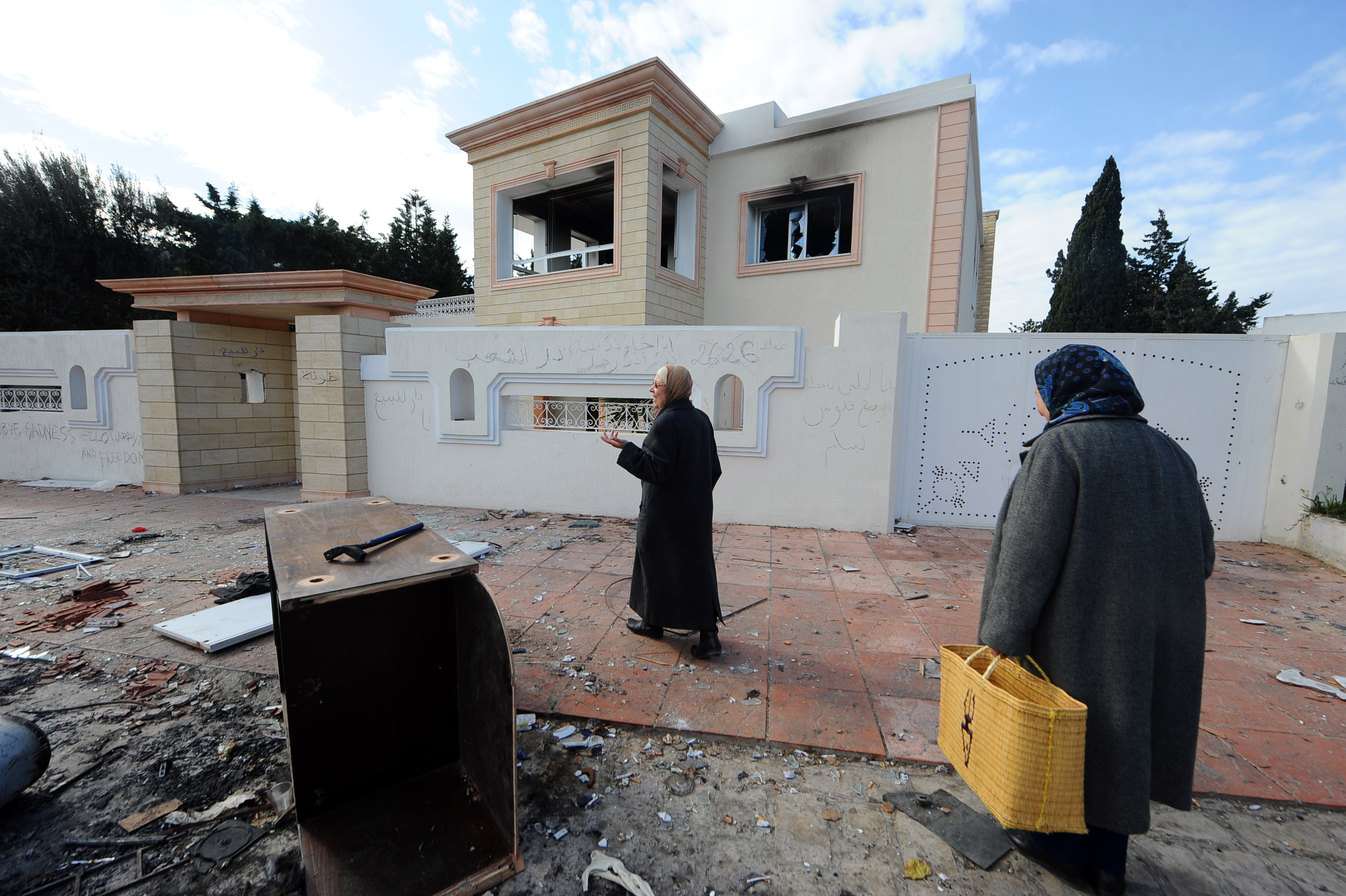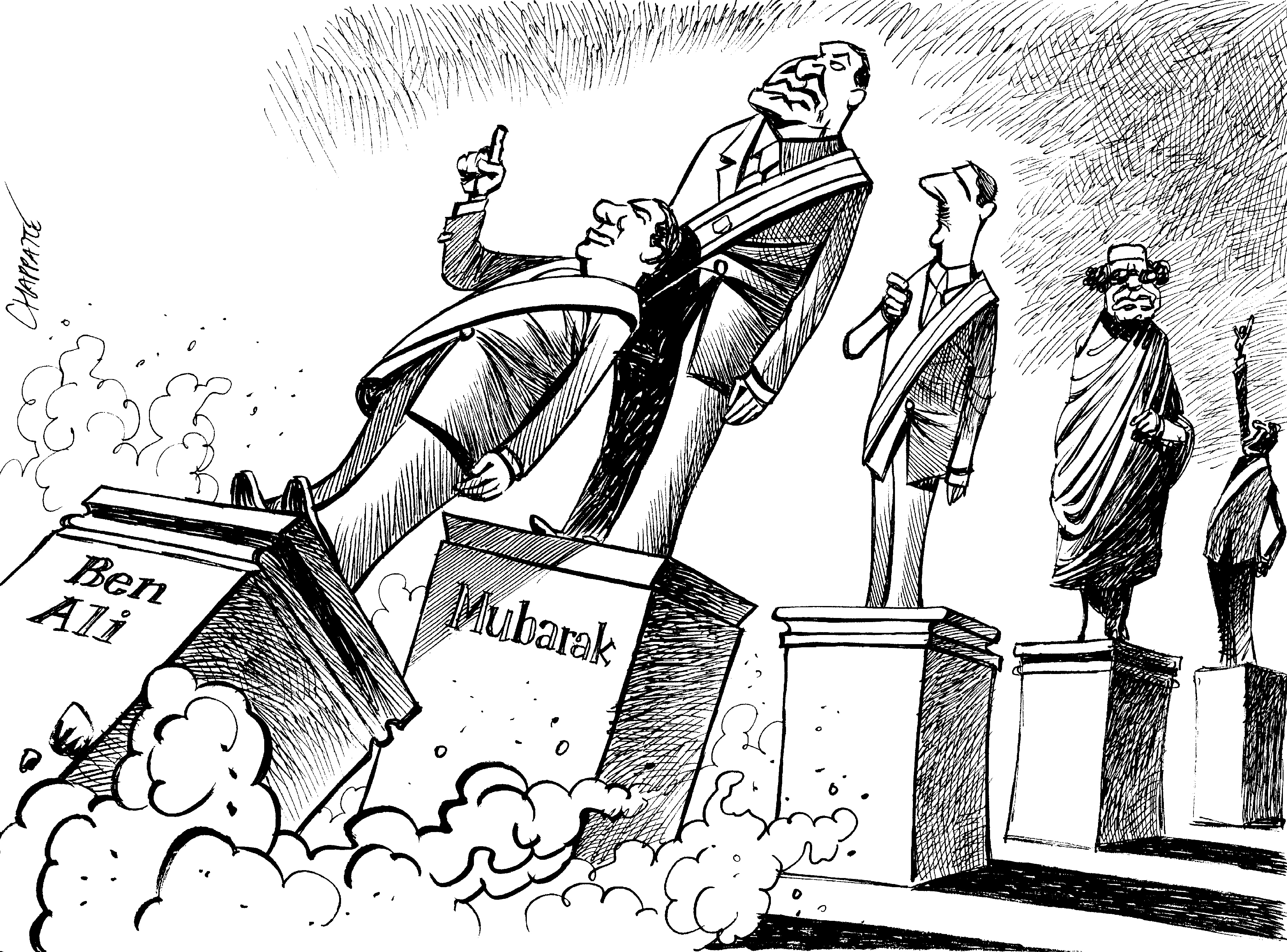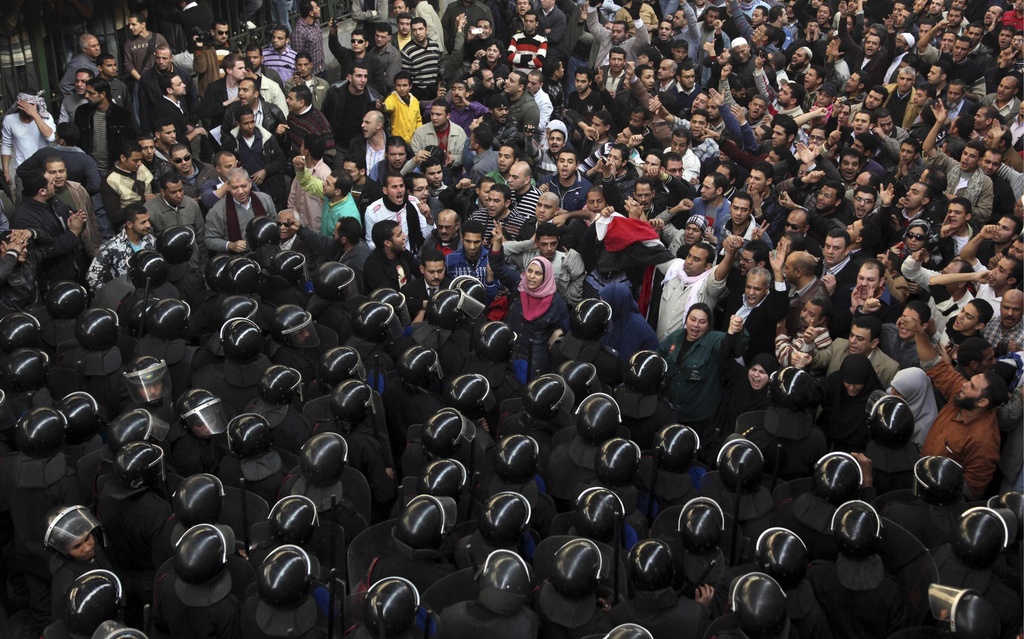Swiss hope to close Arab Spring cases in 2013

As dictators of the Arab world began falling under the weight of the Arab Spring uprisings, Switzerland was quick to announce the freezing of assets suspected to have been embezzled by the former rulers of Tunisia, Egypt and Libya.
A year and a half later, the deputy federal prosecutor with the Swiss Federal Prosecutor’s Office, Maria-Antonella Bino, says the cases remain a priority for her office, which hopes to finalise its investigations by the end of 2013.
swissinfo.ch: Since the first government announcements of asset freezes early last year, have the amounts involved increased?
Maria-Antonella Bino: In relation to the $410 million (SFr380 million) in assets that were frozen following the fall of former President Mubarak, at this stage of the investigation a further $290 million has been added which was discovered as a result of investigations carried out by our office in the context of a criminal process opened, notably in relation to the support of, or participation in a criminal organisation.
For Tunisia, the initial $60 million identified initially has not changed. The prosecutor’s office has been investigating the Tunisian case for more than a year and a half. We don’t think we are going to find any more suspect funds in Switzerland. To our knowledge, everything that has been in our power to do, we have done. The amounts seized following the blocks ordered by the government and the amounts blocked in criminal procedures correspond.
swissinfo.ch: In June, a court in Cairo dismissed a corruption allegation against the Mubarak clan. What are the implications of these continuing cases for the investigations conducted by the Swiss prosecutor?
M-A.B.: It is evident that in procedures such as those relating to the Arab Spring, the development of inquiries and the pronouncement of judgments concerning stolen assets and the people presumed to be responsible have a fundamental impact on the advancement and the results of procedures taking place in Switzerland. The facts that we are learning about have their origins in the countries concerned. So in this context, it is important that we are quickly informed of all developments.
We analyse the significance of judgments delivered, notably in Egypt, because as you can see in reading the Egyptian press, there have been more than one.
In other words, for Egypt – and for Tunisia – local procedures are still underway.
swissinfo.ch: Aside from Egypt, are you involved in other cases linked to the Arab Spring?
M-A.B.: We are investigating suspected money laundering and support and participation in organised crime in relation to Libya and also money laundering in relation to Syria. The people under investigation are citizens of Libya and Syria.
swissinfo.ch: Federal prosecutor Michael Lauber declared that Switzerland was the only country to make progress in cases related to the Arab Spring. Is that still the case? Does the prosecutor’s office collaborate with the justice systems of countries other than those of the complainants?
M-A.B.: Switzerland is very advanced and we are proceeding with alacrity. We are working with other countries concerned with the same issues, a collaboration which is particularly fruitful. The demands of mutual assistance are being executed in both the Egyptian and Tunisian cases.
swissinfo.ch: Do the legal proceedings in Switzerland have an impact on those that could be launched in other countries?
M-A.B.: I speak in a purely personal capacity. Switzerland was one of the first countries to block assets and we are well advanced in our investigations. This relatively advanced position could have a ripple effect in other countries, not least because we make requests for legal assistance in foreign jurisdictions which then also open a criminal procedure thanks to the elements indicated in our request for assistance.
swissinfo.ch: Can you estimate how long these investigations will last?
M-A.B.: Concerning the finalisation of the Swiss investigations, we would like to think in terms of months not years, but it is always difficult to give a prognosis. The progression of the case depends on several factors and not exclusively on the strength of the work done by the investigators. The people concerned by the inquiries have the right to appeal almost all points of the case. Depending the complexity of the questions raised, it takes between one and eight months for the appeals to be heard by the Federal Criminal Court. And, in certain cases, the decision of the court can itself be the object of an appeal, which could then extend the process for several months again.
I can only underline that the cases linked to the Arab Spring are a priority for the prosecutor’s office, as the federal prosecutor Michael Lauber stated at the beginning of his mandate. As such, we strive to dedicate a part of our resources to the advancement of these investigations.
swissinfo.ch: Is the prosecutor’s office still lacking the capacity to tackle these thorny cases?
M-A.B.: In this kind of process, you could always do with an extra ten or 20 people. But that doesn’t necessarily determine the efficiency of the work of the prosecutor’s office. Above all you need a good strategy, to take the right decisions at the right time and to have a little bit of luck as well.
Currently about 20 people (police, prosecutors and financial analysts) are working on the Egyptian and Tunisian cases. The investigations remain complex.
Just for the Egyptian case, there are about 140 banking relationships under investigation. Our financial experts have already analysed more than half. The analysis of each banking relationship can amount to 200 to 5,000 financial transactions, so you have an idea of the scale of the task.
In 1990, Switzerland created a standard against criminal money laundering (art.305bis et 305ter).
With the 1998 law on money laundering, Switzerland introduced due diligence obligations for the banks, insurance companies and independent wealth managers – ie. for all financial intermediaries.
They are required to communicate to authorities any doubts they may have about suspicious transactions.
On February 1, 2009, a series of measures to tighten the money laundering legislation came into force.
(Source: Foreign Ministry)
Switzerland has begun several initiatives to fight financial criminality of politically exposed persons (PPE) which would be coordinated on international level.
Switzerland financially supports the International Centre for Asset Recovery (ICAR) in Basel, and the Stolen Assets Recovery Initiative (StAR) launched jointly by the United Nations Office on Drugs and Crime (UNODC) and the World Bank in 2007.
Since 2001, Switzerland has facilitated informal meetings between government officials in Lausanne.
In June 2010, Switzerland, in collaboration with StAR, organised an international conference in Paris on the theme “Development and Asset Recovery”.
During negotiations at the United Nations Convention against Corruption (UNCC), Switzerland was in favour of the obligation to return stolen assets to the country of origin and for compensation for the victims.
Having ratified the convention on September 24, 2009, its provisions came into force in Switzerland one month later.
(Source: Foreign Ministry)
(Translated from French by Sophie Douez)

In compliance with the JTI standards
More: SWI swissinfo.ch certified by the Journalism Trust Initiative




You can find an overview of ongoing debates with our journalists here. Please join us!
If you want to start a conversation about a topic raised in this article or want to report factual errors, email us at english@swissinfo.ch.